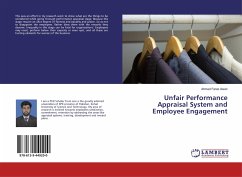The main aim of this book is to measure and verify the effectiveness of the very traditional job redesign strategies - like enrichment, enlargement and rotation - as re-engagement drivers in downsizing or delayering environments in contexts of General Financial Crisis. These organizational restructuring strategies have usually been linked to the need for the so called decentralized structures. However, in context of economic downturn, the pursuit of flexibility will be no longer their main objective. Besides, these redesign processes have had a clear particular impact on middle managers' careers, who have been downsized or delayered. Accordingly, and as a result of the lack of vertical career opportunities, surviving middle managers usually are less satisfied and engaged, suffering what is already known as 'survivor syndrome'. Previous studies were aimed to analyze the survivors reactions, rather than to assess the strategies effectiveness to deal with those special symptoms. This is the issue that this paper positively attempts to address: What is the role of job redesign and lateral mobility programs in regaining the engagement of surviving middle managers?
Bitte wählen Sie Ihr Anliegen aus.
Rechnungen
Retourenschein anfordern
Bestellstatus
Storno








